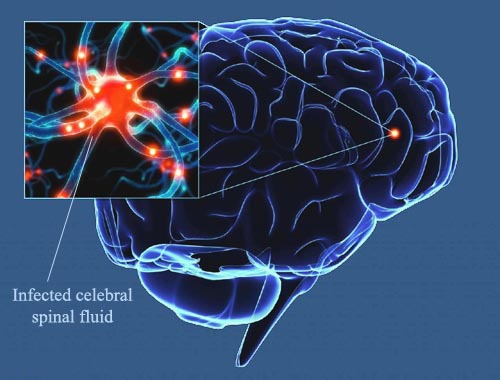Meningitis
Meningitis is a bacterial infection of the membranes covering the brain and spinal cord (meninges). The most common causes of meningitis are viral infections that usually get better without treatment. However, bacterial meningitis infections are extremely serious, and may result in death or brain damage, even if treated. Meningitis may also be caused by: Chemical irritation; Drug allergies; Fungi; Parasites; Tumors; Most viral meningitis is due to enteroviruses, which are viruses that also can cause intestinal illness. Infants, immunocompromised patients, and those infected with herpes viruses or arboviruses are more likely to have complications. It is important to distinguish viral meningitis from bacterial meningitis, which is associated with significant morbidity and mortality and requires urgent treatment. Early diagnosis of viral meningitis may allow antibiotics to be stopped and patients to be discharged from the hospital. Bacterial meningitis is a rare but serious inflammation of the meninges caused by various bacteria. Streptococcus pneumoniae, Haemophilus influenzae type b (Hib), and Neisseria meningitidis are the predominant causative pathogens, in both adults and children. Most commonly affects extremes of age (<5 years and >60 years) because of impaired or waning immunity.
